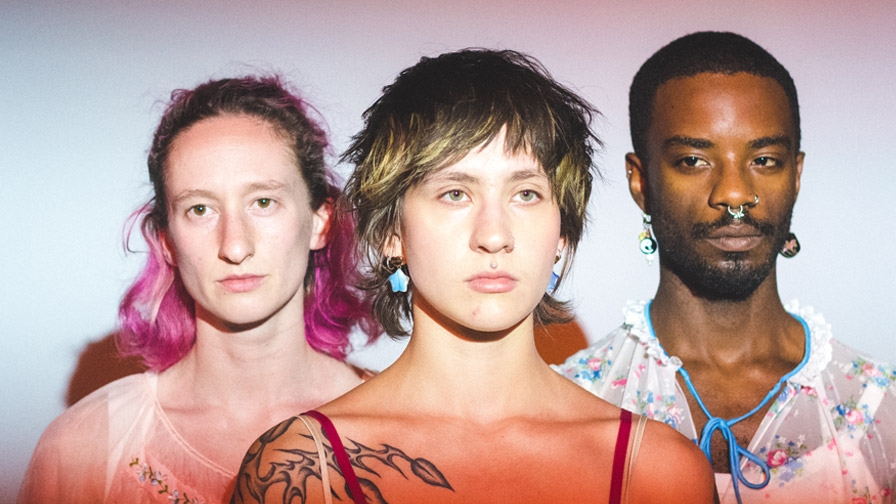Let’s Dance
Let’s Dance

By Alexandra Jhamb Burns ’21.5
Photographs by Alexis Welch ’22
A few blocks west of the subway stop in Gowanus, Brooklyn, and on a stretch of avenue populated mainly by warehouses and auto repair shops, a performance space called Life World attracted a stream of young Middlebury alumni on a Saturday evening in May.
This audience of approximately 70 Middlebury alumni and the few stragglers were here to see the sold-out performance of “Lullaby Machine,” a dance show about living online, choreographed by Maia Sauer ’22. Maia has been dancing since she was four years old, but in making the piece she took a more backstage role as choreographer. Her cast of dancers included Middlebury alumni Cheryl Engmann ’22, C Green ’19.5, and Sam Kann ’21, as well as Daisy Maass. The show also incorporated live visuals, which were designed by Maia’s friend Sylvia Ke.
Each dancer embodied a distinct aspect of digital life. Daisy was the evident protagonist, at times monologuing directly to the audience and scrolling on her phone where she encountered or even dreamt up the other dancers. C and Sam danced almost exclusively in tandem and enacted an idealized version of internet relationships. Cheryl represented a darker version of online life. Her twirls were a kind of mental spiraling as she made her way down an Internet rabbit hole.
I keep learning about what it means to be an artist in the real world, and a lot of it is logistics.”
Until just over a year ago, Maia and I had only occasionally crossed paths during our overlapping time at Middlebury. Last June, while I was frantically searching for roommates and an apartment, a mutual friend mentioned that she had heard that Maia was trying to move to Brooklyn. In response to this news, I opened Instagram and shot off a direct message to Maia asking if she was in the market for roommates. And like any anxious person in my age bracket, I closed out the message with “No worries if not!”
Maia moved to New York a few months after she graduated, and ever since we’ve lived together she’s been grappling with the question of how to be a working artist, especially one without ties to an established institution, after having the backing of Middlebury in many of her performances over the last four or so years. She’s concluded that a key aspect of that path is her digital presence.
“I have always been really fascinated by the slight differences I perceive in how I present myself online versus how people see me in my day-to-day life,” she told me. “And I think, especially since moving to a new city after graduation and feeling like I’m rooting in new communities and meeting a lot of people for the first time, I’ve been acutely aware of those differences.”
In the days following the show, Sam and C stayed with us in our apartment. Sam was one of the organizers of Plex, an arts festival in Burlington that took place later in the month. Much like Maia’s show, it was a grassroots effort, coming together largely without any institutional support. During her time at Middlebury, Sam was one of the founding organizers of the annual Nocturne Arts Festival, so corralling artists isn’t new to her. Now that they are no longer tethered to an institution, Maia and Sam have a lot of conversations about navigating the postcollege artist landscape.
“I keep learning about what it means to be an artist in the real world, and a lot of it is logistics,” Sam laughs, “which is like a funny thing that I guess. You spent so, so, so much time trying to create the space to create within and then you get there and then you do the show and then you don’t really know if it mattered to anyone. And then there’s also the lingering feeling of like, was that good? Like, did people like it? Like are we good artists? Am I a good artist? And also like, where do I go from here?”